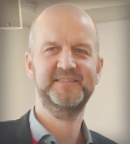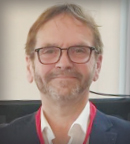The American Society of Hematology (ASH) recently announced the donation of next-generation sequencing equipment to six reference laboratories in five countries in Latin America. These countries constitute the International Consortium on Acute Leukemia (ICAL), a clinical network supported by the Society that is dedicated to improving care of patients with acute leukemia. The effort to donate six iSeq 100 instruments and implement protocols for their use is being led by two ICAL volunteers and pioneers in next-generation sequencing: Peter Valk, PhD, of the Erasmus University Medical Centre in Rotterdam, Netherlands, and Torsten Haferlach, MD, of the Munich Leukemia Laboratory in Germany and The Torsten Haferlach Leukemia Diagnostics Foundation of Germany.

Peter Valk, PhD

Torsten Haferlach, MD
This donation has lifesaving potential for individuals with acute myeloid leukemia (AML). Studies suggest that fewer than 20% of patients with AML in low- and middle-income countries are long-term survivors. Barriers to quality care include delayed diagnosis, absence of methods for proper risk stratification, and higher frequency of therapy-related complications. Although next-generation sequencing technology has revolutionized the diagnosis of AML in countries with advanced health-care systems, it can be costly to install and implement, particularly in low-resource settings.
The ICAL brings together leading clinical investigators from Europe, North America, and South America to improve the standard of care and outcomes for patients with leukemia in Brazil, Chile, Paraguay, Peru, and Uruguay. ICAL activities have already yielded positive results, including infrastructure improvements, demographic enrollment, and enhanced collaboration among researchers.
Establishing Risk Stratification
According to the 2017 European LeukemiaNet (ELN) guidelines published in Blood, risk stratification of AML can only be achieved by implementing next-generation sequencing.1 Within the ICAL laboratory and diagnostic guidelines subcommittee, chaired by Dr. Valk, knowledge, protocols, and samples are exchanged to establish routine sequencing-based AML diagnostics.
The Torsten Haferlach Leukemia Diagnostics Foundation of Germany agreed to donate Illumina iSeq 100 machines, reagent starter kits, and software tools to each of the countries participating in ICAL. The donation, which was also supported by the biotechnology company Illumina, will help ensure that patients with AML in these nations will benefit from more accurate classification and prognosis and will ultimately have access to precision treatments.
The iSeq 100 instruments and consumables will be installed and fully operational by early next year. Full training for the lab teams will be delivered by Dr. Valk and his team from the Erasmus University Medical Centre in Rotterdam, as well as Dr. Haferlach’s team at the Munich Leukemia Laboratory.
Reference
1. Döhner H, Estey E, Grimwade, D, et al: Diagnosis and management of AML in adults: 2017 ELN recommendations from an international expert panel. Blood 129:424-447, 2017.

